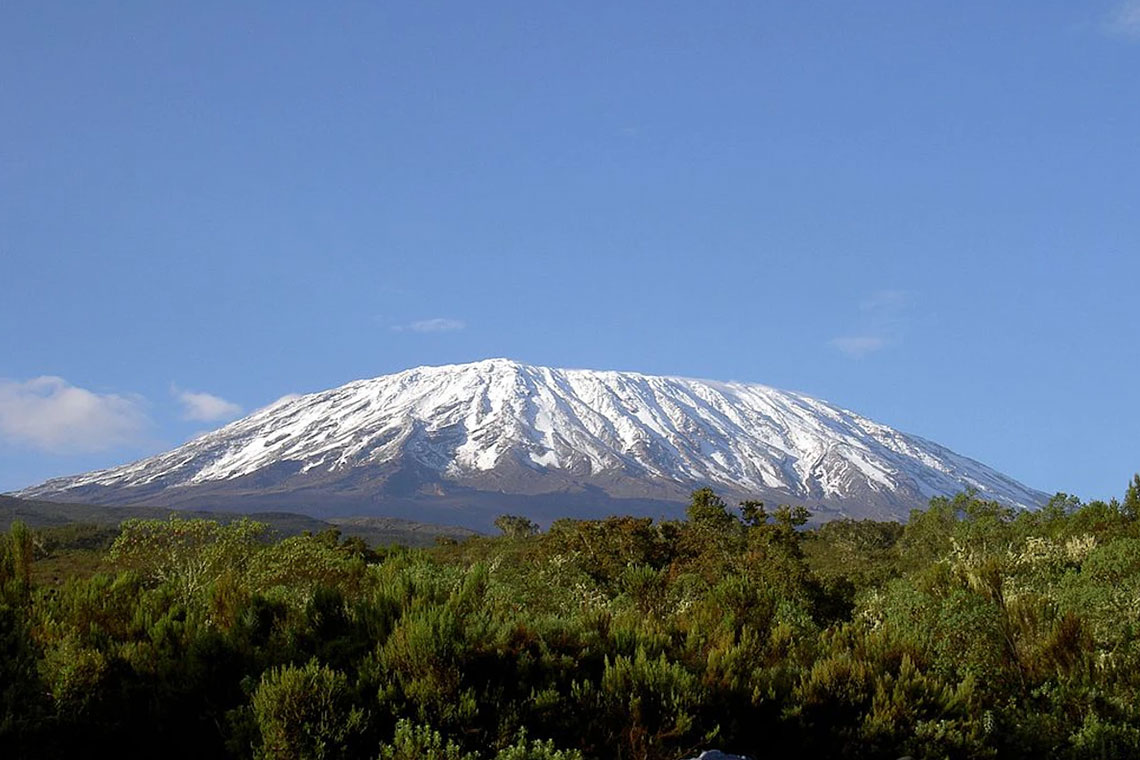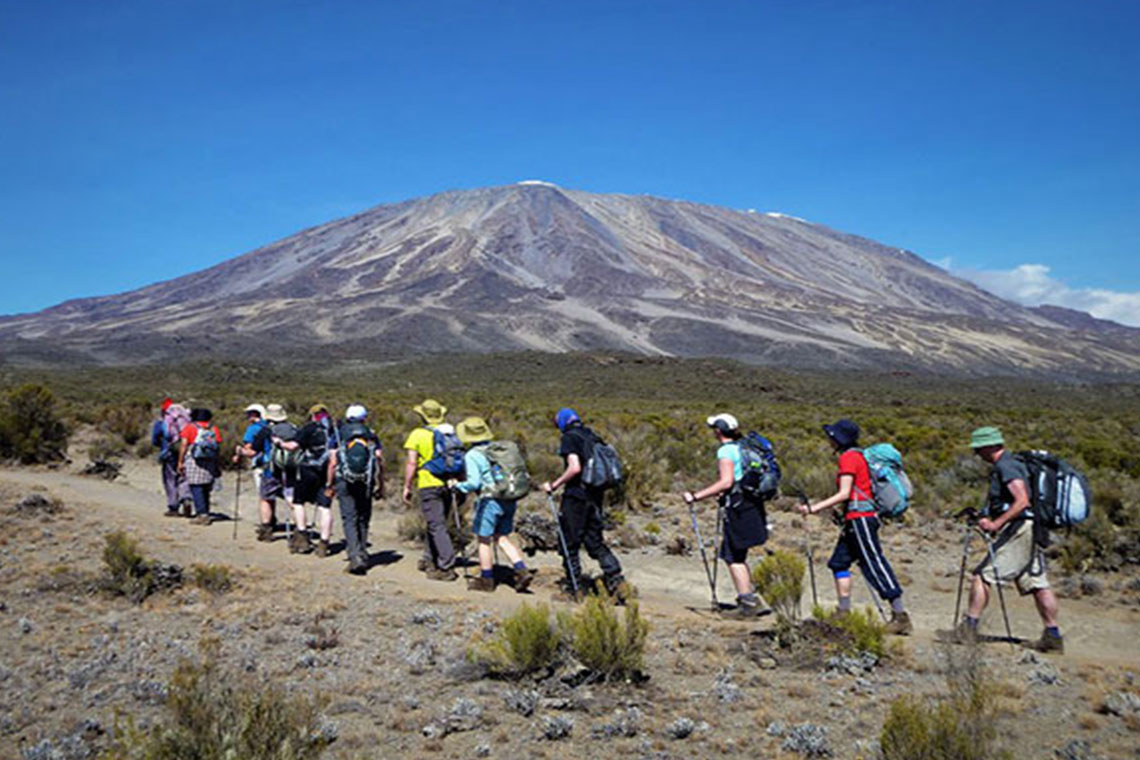Bring cash for tips
Our final tip has to do with tips. Everyone who completes a Kilimanjaro climb always raves about the invaluable help and support of their mountain crew, which consists of guides, porters and a cook. The lead guide not only literally leads you up the mountain, but he’s also there to encourage, advise and ensure your safety. Then there are the other guides who also encourage you, look after your health, and share their knowledge and stories of the mountain and Tanzania. And then there’s the cook, who prepares those all-important warm and hearty meals to fortify both body and spirit during the trek.
And finally, but not least, there’s the porters, who display astounding strength and endurance as they carry all of the team’s equipment (from water to tents, food and personal belongings) up and down the mountain. While we as trekkers huff and puff under the weight of a little slack pack, they shoulder 20 kg and take on the rocky terrain with smiles and good humour.
The tipping ceremony
At the end of every Kilimanjaro climb is a tipping ceremony. This is an important tradition that involves singing and dancing. It’s a wonderful moment of group togetherness that marks the end of the adventure before everyone heads their own way. During the ceremony trekkers tip the different crew members to show their thanks and appreciation. It’s not at all compulsory for you to tip, and yet we’ve never met any trekker who doesn’t very much want to tip the crew. As mentioned, the crew are bastions of strength during an expedition that is for most of us a great challenge and occasion.
The Kilimanjaro tipping ceremony involves song and dance!
Tips are an important source of income
It’s also useful for trekkers to understand that their tips go a long way in supporting the mountain crew. While all reputable tour operators offer their mountain crew good and fair wages, tips are an important supplementary income. And foreign currencies often go a long way indeed in Tanzania.
How much should I tip?
The amount that you tip is, of course, entirely up to you. And we certainly don’t wish to limit anyone who’s keen to tip over and above what others normally give. That said, we understand that many of you would like a ballpark figure to help guide you in the amount of cash to bring along on the trek.
In accordance with the guidelines set out by the Kilimanjaro Porters Assistance Project (KPAP), we advise bringing something in the area of $250 to $300 – this will cover tips for all of the mountain crew. But to know more, please read our post Tipping on Kilimanjaro. Here we explain how we arrived at this figure, who it goes to, and more.
Handing out certificates to celebrate a successful Kilimanjaro climb at in indoor tipping ceremony
Bring money with you to Tanzania
A final note. You’ll want to bring money with you to Tanzania. This is because there aren’t any opportunities just before the tipping ceremony to get your hands on cash. You will need to carry the money with you on the climb. Bring the money with you, in US dollars. You can draw cash in Arusha or Moshi at the ATMs, however unless you are visiting these towns you might not have time. It’s easier to just have the money with you ready. We recommend you bring along a little plastic bag, draw cash and seal it in there. You can then stow the dosh at the bottom of your backpack and forget about it till the necessary moment. You’ll be super grateful come the tipping ceremony that you were well organised and can show your appreciation to the crew for all of their hard work and support.
Ensure you have the correct currency
You can tip your mountain crew in US dollars or Tanzanian shillings.
Please note that your US dollar notes need to be untorn and unmarked, and also printed after 2006, otherwise the banks in Tanzania won’t accept them. So be sure to check every note before you get on that plane!


